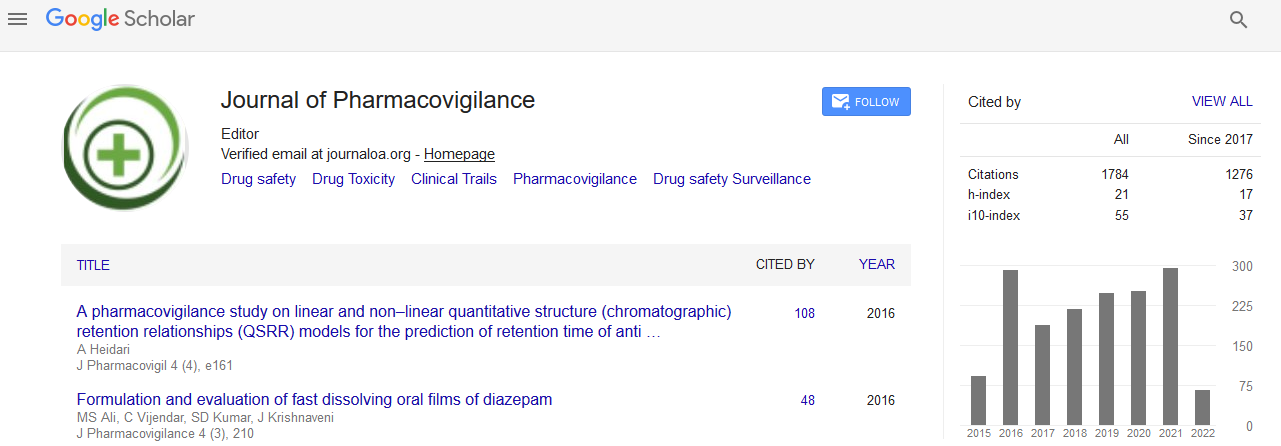Indexed In
- Open J Gate
- JournalTOCs
- The Global Impact Factor (GIF)
- RefSeek
- Hamdard University
- EBSCO A-Z
- OCLC- WorldCat
- Publons
- Euro Pub
- Google Scholar
Useful Links
Share This Page
Journal Flyer

Open Access Journals
- Agri and Aquaculture
- Biochemistry
- Bioinformatics & Systems Biology
- Business & Management
- Chemistry
- Clinical Sciences
- Engineering
- Food & Nutrition
- General Science
- Genetics & Molecular Biology
- Immunology & Microbiology
- Medical Sciences
- Neuroscience & Psychology
- Nursing & Health Care
- Pharmaceutical Sciences
Challenges from the new European pharmacovigilance legislation and their implementation by competent authorities
2nd International Conference and Exhibition on Pharmacovigilance & Clinical Trials
November 18-19, 2013 Hilton San Antonio Airport, TX, USA
Walter Schwerdtfeger
Keynote: J Pharmacovigilance
Abstract:
In July 2012, the new European Pharmacovigilance Legislation came into force, being the most important change to the regulation of human medicines in the European Union since 1995. The new legislation has significant implications for both the pharmaceutical industry and regulators. Within the European network roles and responsibilities have been made clearer, and one objective is to minimize duplication of efforts. However, the new legislation and its implementation also put a considerable surplus load on the European Medicines Agency and national competent authorities. Although decision-making has more and more been moving to the European level, a substantial part of the work, e.g. assessment of dossiers and scientific evaluation of data, still has to be performed by national authorities. The new tasks include strengthened requirements for risk management plans (RMP), a harmonized approach for signal detection and signal assessment within a clear legal framework, and increased transparency as well as communication to the public. Furthermore, once a new safety concern has been detected after approval of a medicine, the procedures for evaluating the data, agreeing on regulatory measures, and giving final recommendations have been enhanced and further harmonized. One of the main challenges for national authorities to deal with is the requirement to have an RMP in place for any new medicinal product being authorized, including generics, with only few exceptions. A summary of each RMP has to be published. With currently only having one-year of experience with these new requirements, careful evaluation of their long-term practicability will be needed in the future.
Biography :
Walter Schwerdtfeger received his Science Ph.D. from Johann-Wolfgang-Goethe University in Frankfurt am Main. He continued his career at the Max-Planck-Institute for Brain Research and the Paul-Ehrlich-Institute, then he switched to the Federal Ministry of Health in Bonn. Since 2010, he is the President of the Federal Institute for Drugs and Medical Devices. He has been working as a lecturer and professor at the Universities of Frankfurt, Valencia (Spain) and Bonn, published in reputed journals and organized scientific symposia and workshops. He is Vice-Chair of the Management Board of the European Medicines Agency in London.


